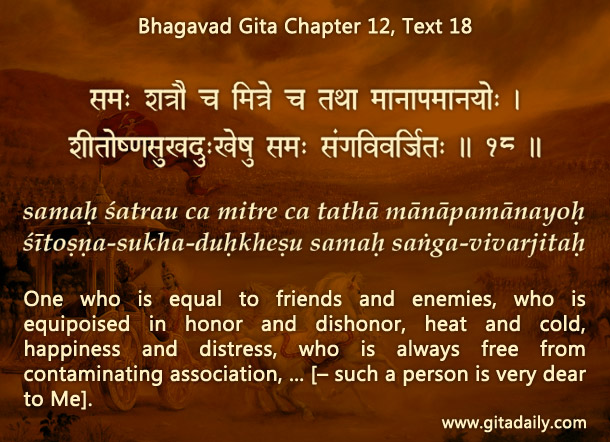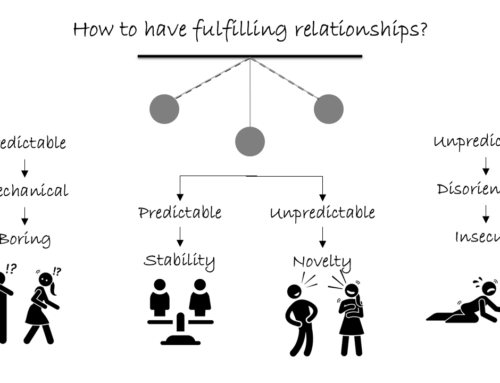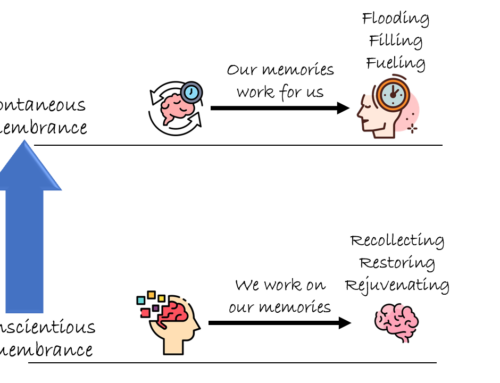In the Bhagavad-gita’s twelfth chapter, Krishna’s list of qualities of devotees (12.13-20) don’t include any descriptions of devotional ecstasy. Far from it, the list stresses the regulation of emotion, as when recommending equanimity amid dualities (12.18). Why is that?
Because of both devotion’s essential nature & Arjuna’s particular devotional service.
Devotion’s central feature: Many people may equate devotion with emotions or even emotionality. But devotion is the basis for our personal relationship with the Divine — and relationships are about much more than emotions. While strong emotions are natural in any close relationship, they need to be subordinated to the responsibilities concomitant with that relationship. Suppose a mother sees that her baby has had a major fall and is bleeding severely. Though she may feel horrified, she needs to put aside her emotions and do whatever is necessary to help the baby: say, provide first-aid and call emergency services. Similarly, in the human-divine relationship, the focus needs to be on dedication to service, not on effusiveness of emotion. Certainly, ecstatic emotions are a part of devotion, but they aren’t its whole; they aren’t its most important part; and they may not be at all the relevant part in particular situations.
Arjuna’s particular devotional service: For Arjuna on the battlefield, his emotions had obstructed his service to Krishna. His agony at the prospect of fighting against his venerable elders was understandable, yet it was unbeneficial for his service. To reassure Arjuna, Krishna explained philosophically how the divine will was meant for the good of everyone, even Arjuna’s elders. Then, wanting to raise Arjuna above his devotion-sabotaging emotions, Krishna emphasized the dimension of devotion that centered on unflappability.
One-sentence summary:
Devotion is defined not by emotion but by dedication to service — wanting to help Arjuna dedicate himself to his service on the battlefield, Krishna stressed the devotional virtues centered on equanimity.
Think it over:
- What is the central feature of devotion?
- What is the role of emotions in devotion?
- How do Arjuna’s circumstances shape Krishna’s presentation of devotion?
***
12.18: One who is equal to friends and enemies, who is equipoised in honor and dishonor, heat and cold, happiness and distress, fame and infamy … – such a person is very dear to Me.
To know more about this verse, please click on the image




Leave A Comment